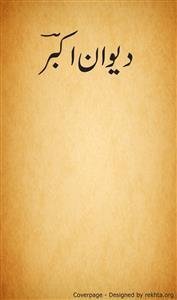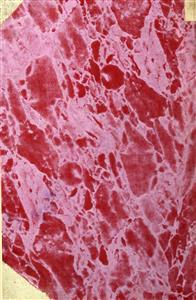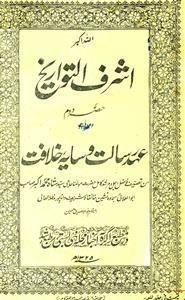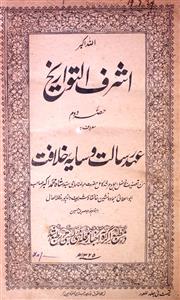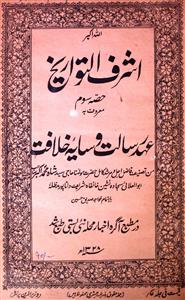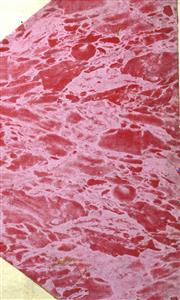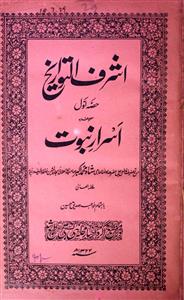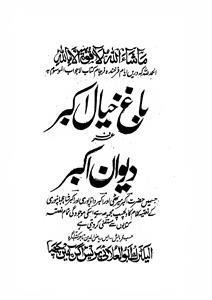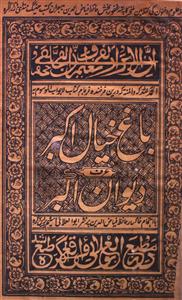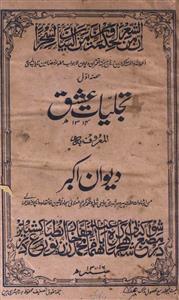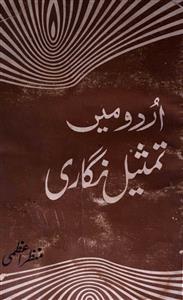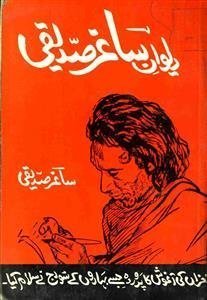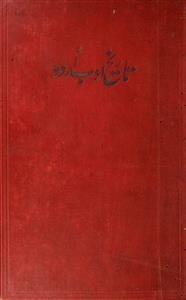 For any query/comment related to this ebook, please contact us at haidar.ali@rekhta.org
For any query/comment related to this ebook, please contact us at haidar.ali@rekhta.org
About The Book
زیر نظر "دیوان اکبر" شاہ اکبر دانا پوری کا دیوان ہے۔ جس کی غزلوں میں جذب و مستی کی کیفیت کے علاوہ ملک و قوم کے مسائل پر بھی خامہ فرسائی کی گئی ہے۔ غزلوں میں بلا کی سلاست و روانی ہے۔ چوں کہ آپ کا تعلق ایک ایسے صوفی خانوادے سے تھا جو تصوف کے ساتھ ساتھ شعرو شاعری کا بھی دلدادہ تھا۔ اسی مناسبت اور وراثت کے چلتے آپ کا ذہنی میلان بھی شعرو شاعری کی طرف ہوا۔ اور اسی لئے آپ کی شاعری میں تصوف کی نمایا جھلک دیکھنے کو ملتی ہے۔
About The Author
Hazrat Shah Akbar Danapuri was born on Wednesday, September 11, 1843, in the new town of Agra. His lineage goes back to Maner Sharif through the famous Sufi Makhdoom Abdul Aziz Ibn Imam Muhammad Taj Faqih. He also had the privilege of being a descendant of Jagjut. Among his ancestors were the famous elders of Suhrawardia, Qadri and Chishtia, Sheikh Sulaiman Langar Zameen, Makhdoom Ahmad Chishti, Makhdoom Akhund Sheikh Chishti, Shah Inayatullah Chishti. On the maternal front, he had the privilege of being a descendant of the famous Sufi Makhdoom Latifuddin Bandagi of Mora Talab. Akbar’s initial education was done under the tutelage of his uncle Maulana Shah Muhammad Qasim Abulolai Danapuri. Apart from his uncle and father Makhdoom Sajjad Pak, he was afforded caliphate from Shah Wilayat Hussain Dilawari Manemi, Shah Kazim Hussain Chishti, Shah Ata Hussain Fani and Shah Ali Hussain Abulolai. Shah Akbar Danapuri had a passion for poetry and speech from the very beginning. The companionship of the scholars further cultivated his taste. Khwaja Haidar Ali Atish’s student, Waheed Allahabadi was his mentor. Akbar became very popular and his poetry became a sympathizer for those with an eye for poetry. His first Diwan, ‘Tajalliyat-e-Ishq’, published while he was alive and garnered uncommon fame, while the second ‘Jazbat-e-Akbar’, came out after he had passed away and became equally popular. After the demise of his father Makhdoom Sajjad Pak in 1298 AH, Shah Akbar Danapuri became the Sajjada Nasheen of Khanqah Sajjadia Abulolaiya, Shahtoli, Danapur, India and continued to perform the duty of lifelong spiritual growth and guidance. The circle of his followers is abounded in Agra, Ajmer, Hyderabad, Delhi, Lahore and Karachi.
Hazrat Akbar also used to visit these places annually. Shah Akbar Danapuri went on Hajj in 1884, two years after his prostration. This journey of Hazrat Akbar was very historic and memorable. Most of his father's followers were present so Hazrat Akbar did not suffer any inconvenience. During this time he had the fortune of visiting the inner part of the Ka'bah twice. Hazrat Akbar was married to Bibi Naeema, daughter of Shah Wilayat Hussain Delawari, according to the wishes of his mentor and uncle Shah Qasim Danapuri, from whose womb were born four daughters and one son Shah Mohsin Danapuri.
Akbar was a prolific writer, most of his works were published in his lifetime and became popular and beloved. The famous works are as follows. Shor-e-Qayamat (Agra), Tohfa-e-Maqbool (Patna), Aal-o-As'hab (Patna 1883), Khuda Ki Qudrat (Patna 1887), Nazar-e-Mahboob (Agra 1888), Maulood-e-Fatemi (Agra 1889), Idrak (1891) , Sair-e-Delhi (Agra 1893, Agra), Iradah (Agra, 1893), Dil (Agra, 1894), Tajlliyat-e-Ishq (Agra, 1898), Tarikh-e-Arab (Agra, 1900), Ahkam-e-Namaz (Agra, 1902), Risala-e-Gharib Nawaz (Agra, 1902), Ashraf Al-Tawarikh (1904 Agra), Il-timaas (1904 Agra), Ashraf Al-Tawarikh II (1907 Agra), Ashraf Al-Tawarikh III (1910 Agra), Jazbat Akbar (1915 Agra), Nad-e-Ali (1938, Allahabad).
He passed away at the age of 67 years on 14th Rajab Al-Marjab 1327 AH 1909 between noon and evening in Khanqah Sajjadia Abulolaiya, Shahtoli, Danapur and was buried in Dargah Makhdoom Sajjad Pak at 9 o'clock that night.
 For any query/comment related to this ebook, please contact us at haidar.ali@rekhta.org
For any query/comment related to this ebook, please contact us at haidar.ali@rekhta.org
